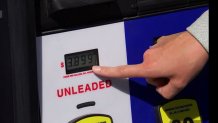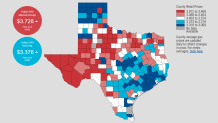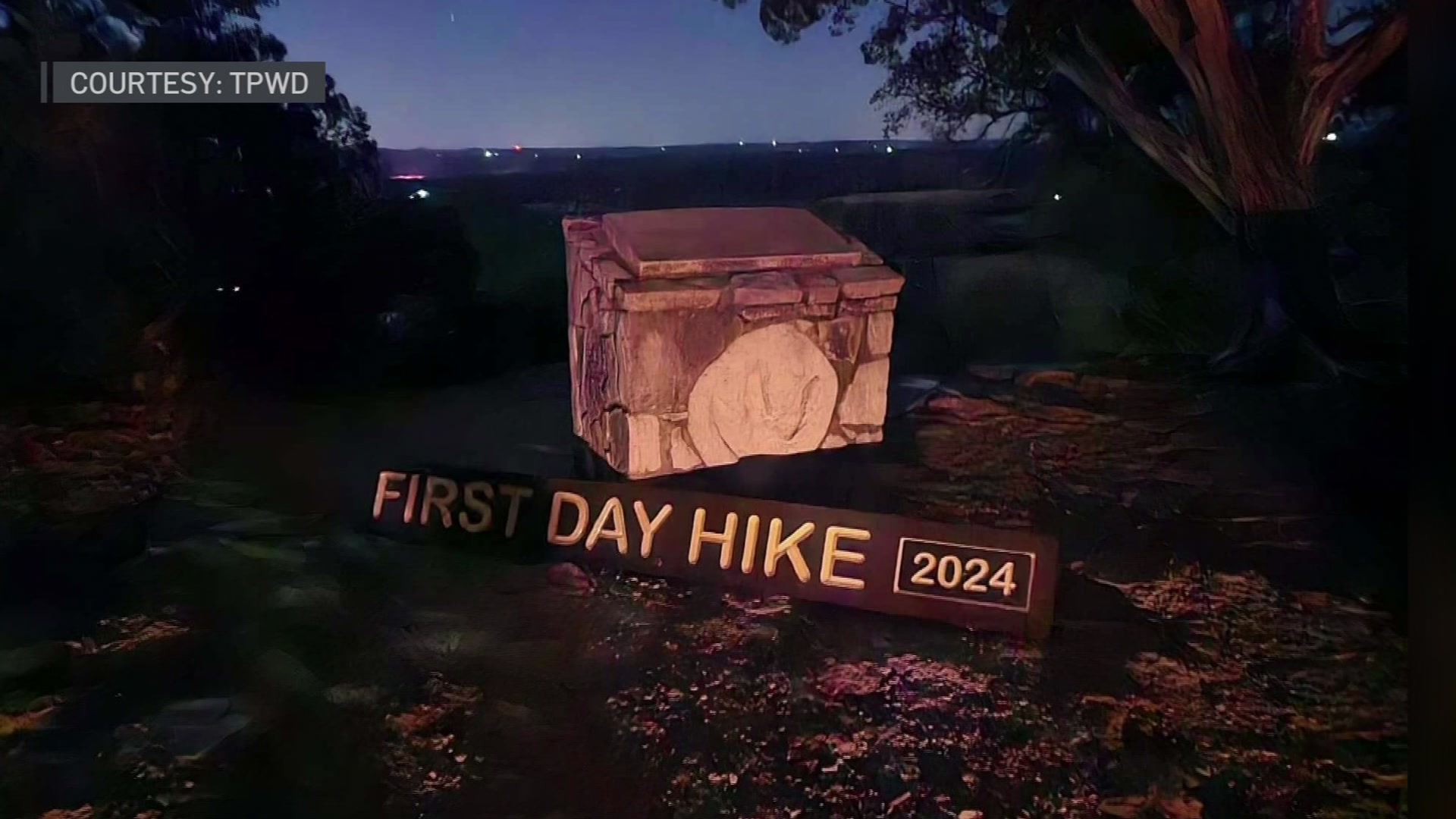As Russia’s assault on Ukraine continues and sanctions mount, oil and gas prices are continuing to surge.
Oil prices are now at an 11-year high. The average U.S. gasoline price is at its highest level since 2008.
At one point Thursday morning, U.S. oil prices reached $116 a barrel. West Texas Intermediate crude futures, the U.S. oil benchmark, has not been in this range since early 2011.
Experts say the worst may still be ahead of us.
Get top local stories in DFW delivered to you every morning. >Sign up for NBC DFW's News Headlines newsletter.
"Over the course of the weekend, it would not be surprising that motorists could step outside see the gas station and prices could go up 20, 30 even 40 cents a gallon in some of these areas,” said Patrick De Haan, Gasbuddy.com Petroleum Analyst.

According to AAA Texas, gas prices across the Metroplex are averaging around $3.47 as of March 3, though some drivers are seeing prices as high as $3.89 a gallon in parts of North Texas. That’s 60 cents higher than what drivers were paying just weeks ago.
Local
The latest news from around North Texas.
According to AAA, the average across Texas is currently $3.38, with higher averages pushing $3.70 in some areas. The national average is $3.73.
Experts predict the average price of gas in the U.S. will reach $4 per gallon, with parts of the West coast paying as high as $5 per gallon by St. Patrick’s Day, which could impact Spring Break travelers.

Prices first topped the $100 mark last Thursday when Russia invaded Ukraine. It prompted fears of supply disruptions from key exporter Russia, in what is already a very tight market due to the pandemic, worker shortages and high demand.
Russia is the world's second-largest oil producer. If there are any new sanctions imposed as the country continues to attack and invade Ukraine, it could drive the price even higher.
This week, the International Energy Agency agreed to release 60 million barrels of oil from global reserves to help ease the pain at the pump. It's the fourth time the agency has done so in its history.
“The situation in energy markets is very serious and demands our full attention,” IEA executive director Fatih Birol said in a statement. “Global energy security is under threat, putting the world economy at risk during a fragile stage of the recovery.”
According to the agency, the 60 million barrel release accounts for 4% of members’ emergency stockpiles of 1.5 billion barrels.
But experts say it's not enough to move the needle and absorb lost supply from Russia. The number is equivalent to about six days of Russian production, and about 12 days of Russia’s exports.
“60 million barrels isn’t that much. That’s the bottom line at the end of the day,” said Bob Yawger, director of the futures division at Mizuho Securities USA, in an interview with CNBC.
As part of the effort, the U.S. will also release around 30 million barrels, the White House said in a statement.
OPEC is expected to meet with its oil-producing allies, including Russia, this week to discuss output for April.
Local Businesses React
The sticker shock is especially hitting businesses that rely on transportation to get the job done, from truckers to meal delivery and other services that require employees to drive.
That includes Cambridge Caregivers and Manchester Care Homes based in Dallas-Fort Worth.
Their caregivers must drive across North Texas for in-home visits to elderly patients.

Gas prices have gotten so bad, their boss is now putting extra money in the checks – out of pocket – to help cover gas to come to work and respond to house calls.
“I mean, these people are going to their jobs. They're living their lives and costs are higher for all of us," said CEO Adam Lampert.
Lampert has a couple hundred staff, so the costs are adding up but he plans to assist employees indefinitely.
"I have every intention of continuing this until there's some moderation in the gas prices,” said Lampert. "The reality is, is that this is not going to change in the near term. I mean, there's geopolitical risks. There's everything that's going on with Russia, which is a huge supplier of oil and gas. And so the risk of it is such that the prices are not going to come down for quite a while."
It's a move he says is a must because it's already difficult keeping good employees in the health industry.
Lampert is currently hiring and hopes that assisting his employees through these times of inflation and other financial strains can help people feel supported.
"We're struggling to keep up. We're struggling to be able to hire people to offer services to our clients," said Lampert. "Every day, we're working to put programs together for our staff to attract them and retain them."
Saving Money at the Pump
If you're looking to save some money at the pump, the U.S. Department of Energy shared some tips on things you can do right now:
- Ease up on the gas and breaks: The harder you make your engine work, the more gas you use. Your gas mileage typically decreases rapidly at speeds above 50 miles per hour, costing you an estimated $0.23 extra per gallon for every 5 mph you drive over 50 mph, according to the U.S. Department of Energy. Braking suddenly often also wastes fuel which is why coasting to a red light or down a hill is recommended.
- Use cruise control: According to USDE, using cruise control on the highway helps you maintain a constant speed and, in most cases, will save gas.
- Remove excess weight from your car: Literally get that junk out of your trunk. Just getting rid of an extra 100 pounds from your vehicle can improve miles per gallon by 1% in some cases.
- Avoid excessive idling: Turn your car off if you're having to wait somewhere. If you plan to be parked with the engine still running for more than 10 seconds, consider turning it off the engine to save on gas. Idling can cost you up to half a gallon of fuel per hour, depending on engine size and air conditioner use.
- Make sure your tires have enough air: If not, it lowers your gas mileage. Check your side door for the sticker with your vehicle's PSI ratings.
- Avoid storing cargo: Extra containers or bike racks can add more weight and affected the vehicle's wind resistance, which can lead to your engine working harder to maintain speed.
- Keep your engine tuned up: Mileage can be greatly improved if you are keeping your engine clean and replacing parts that are necessary for optimal fuel mileage, such as an oxygen sensor.
- Use the right motor oil: The U.S. Department of Energy says you can improve your gas mileage by 1% to 2% if you're using the correct motor oil that matches your vehicle manufacturer specifications and requirements. Words that say "Energy Conserving" on the bottle might be a good place to start, but ask your auto technician for more details.
- Consider getting a car with a better EPA rating: A vehicle with a good EPA rating will give you 30 miles per gallon or more. If you're in the market for a new car, this rating is something to keep in mind.



